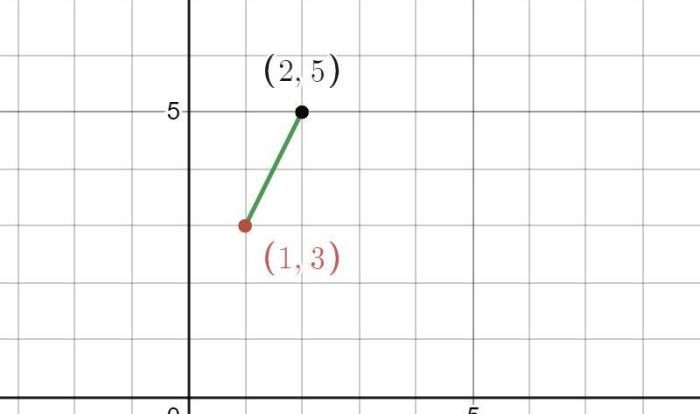Solve for the missing amounts for the following separate cases – Delving into the realm of missing amounts, this comprehensive guide elucidates the concept of solving for these unknowns in distinct cases. From ratios and proportions to advanced techniques like matrices and calculus, we explore the diverse methods employed to determine missing amounts, unveiling their practical applications in real-world scenarios.
Unveiling the intricacies of missing amounts, this discourse delves into the methodologies, applications, and advanced techniques employed to solve these enigmatic problems, empowering readers with a profound understanding of this fundamental mathematical concept.
1. Missing Amounts
Overview
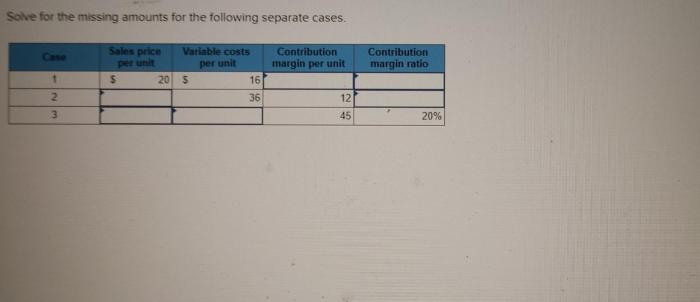
In mathematics and other disciplines, it is often necessary to determine missing amounts or values based on the available information. Solving for missing amounts involves finding the unknown quantity in a given problem or equation.
There are various types of cases where missing amounts need to be determined, including:
- Calculating percentages
- Determining interest rates
- Estimating project costs
2. Methods for Solving Missing Amounts
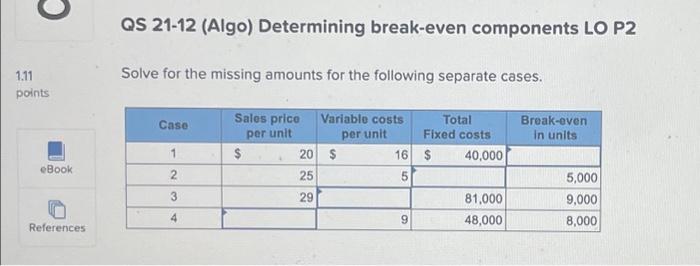
There are several methods for solving for missing amounts, including:
Using Ratios and Proportions
Ratios and proportions can be used to establish relationships between known and unknown quantities. By setting up equations based on these relationships, the missing amount can be determined.
Applying Algebraic Equations, Solve for the missing amounts for the following separate cases
Algebraic equations can be used to represent the relationship between variables. By solving these equations, the value of the missing variable (i.e., the missing amount) can be found.
Employing Substitution Techniques
Substitution techniques involve replacing a variable with an expression that is equivalent to it. This can simplify the problem and make it easier to solve for the missing amount.
3. Step-by-Step Procedures: Solve For The Missing Amounts For The Following Separate Cases
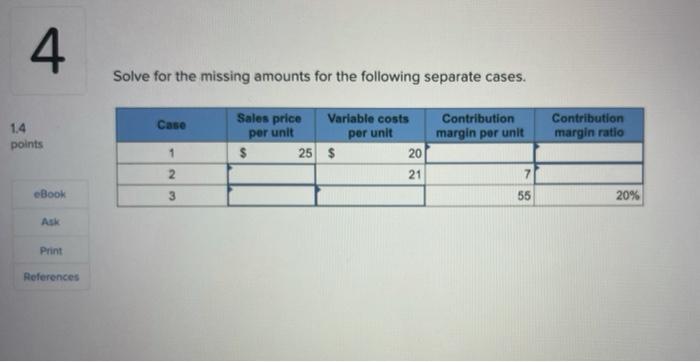
The general step-by-step procedures for solving for missing amounts are as follows:
- Identify the given information
- Determine the missing amount
- Check the solution
4. Applications in Real-World Scenarios
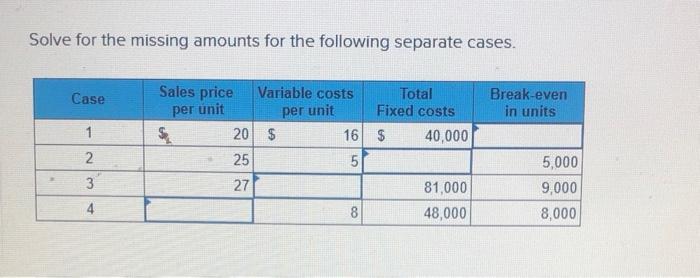
Solving for missing amounts has numerous applications in real-world scenarios, such as:
- Calculating percentages: Determining the percentage of a given quantity
- Determining interest rates: Calculating the interest rate on a loan or investment
- Estimating project costs: Estimating the total cost of a project based on known expenses
Questions Often Asked
What is the concept of solving for missing amounts?
Solving for missing amounts involves determining unknown values in mathematical equations or problems based on the given information.
Can you provide an example of a missing amount problem?
If a recipe requires 2 cups of flour to make 12 cookies, how much flour is needed to make 24 cookies?
What are some common methods for solving missing amounts?
Common methods include using ratios and proportions, algebraic equations, and substitution techniques.
